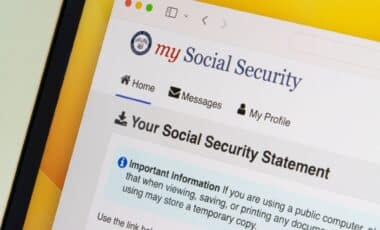The DWP has told state pensioners that, contrary to what a government official said, they won’t be getting a £400 increase in their annual income next year.
State Pensioners Could Miss Out on £400 Triple Lock Payment
In a recent interview on BBC Radio 5 Live, Pat McFadden, the Chancellor of the Duchy of Lancaster, mentioned that the triple lock guarantees a rise of about £400 or more in the basic state pension for the coming year.
However, FullFact, a group that checks facts, has challenged this claim about the full basic state pension, which is expected to go up by around £350 starting in April next year. This increase applies to men born before April 6, 1951, and women born before April 6, 1953.
Hannah Smith from FullFact stated: “It seems likely Mr. McFadden misspoke and was intending to refer to the new state pension (for people of state pension age born after the dates above), the full value of which is set to increase by approximately £460.”
State Pension Increase Likely to Hit 4% Amid Confusion Over Triple Lock Payment
State pension payments increase annually in accordance with the rate of inflation, earnings’ growth, or 0.25% whichever is higher; this is refered to as the “triple lock”.
The figures regarding next year’s increase are based on data released earlier this month. This data, which establishes the earnings component of the triple lock, shows average weekly earnings rose by 4% from May to July this year. Since this is higher than both the current rate of CPI inflation and 2.5%, it likely means the state pension will go up by 4% starting in April 2025, according to Devon Live.
Hannah said: “Although Mr. McFadden said the increase would be “over the next year,” he was responding to a question about financial pressures “this winter,” and his answer, which was slightly unclear, also referred to how the triple lock could help people “this year.” The basic state pension increased in April by around £700 a year, while the new state pension increased by around £900 a year.”
She went on to say: “If an MP makes an inaccurate claim on broadcast media, they should take responsibility for ensuring it is appropriately corrected and make efforts to ensure the correction is publicly available to anyone who might have heard the claim.”









